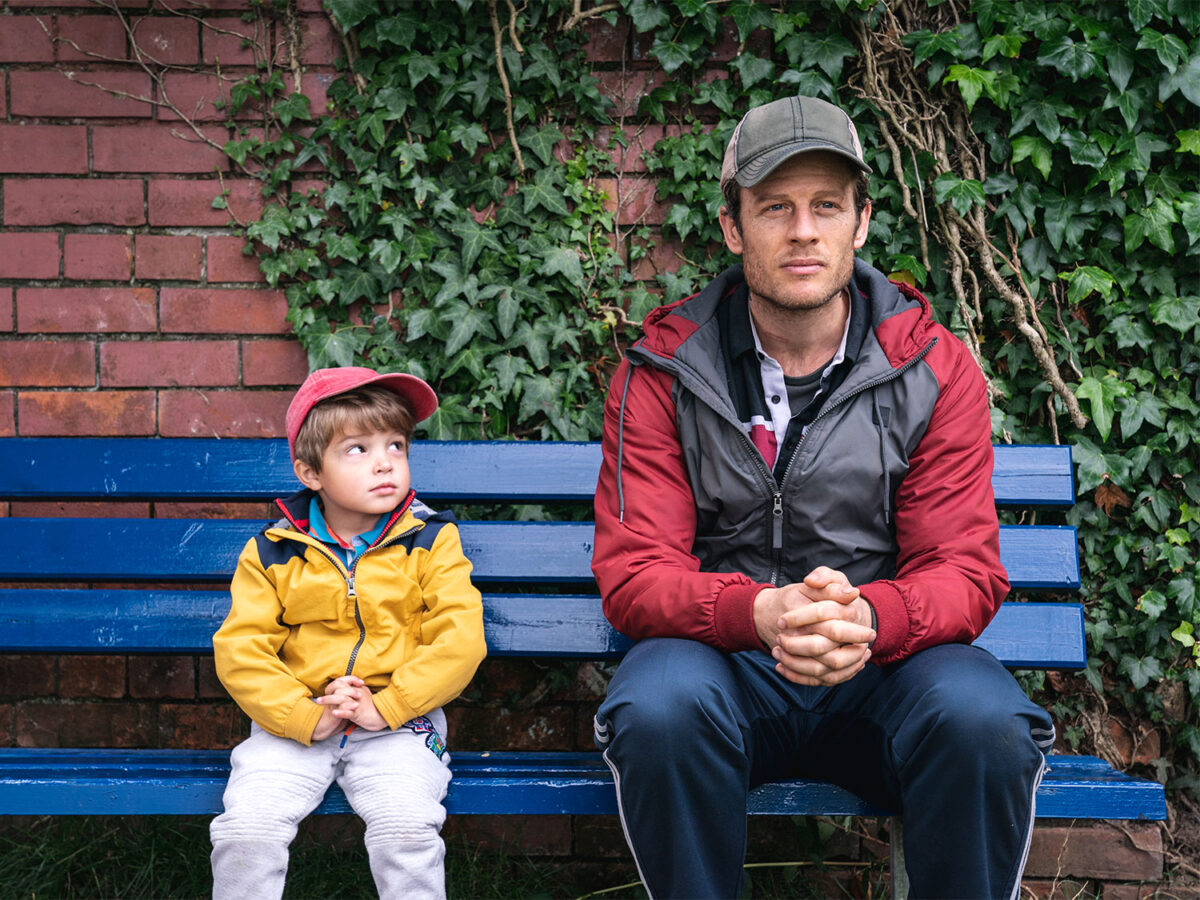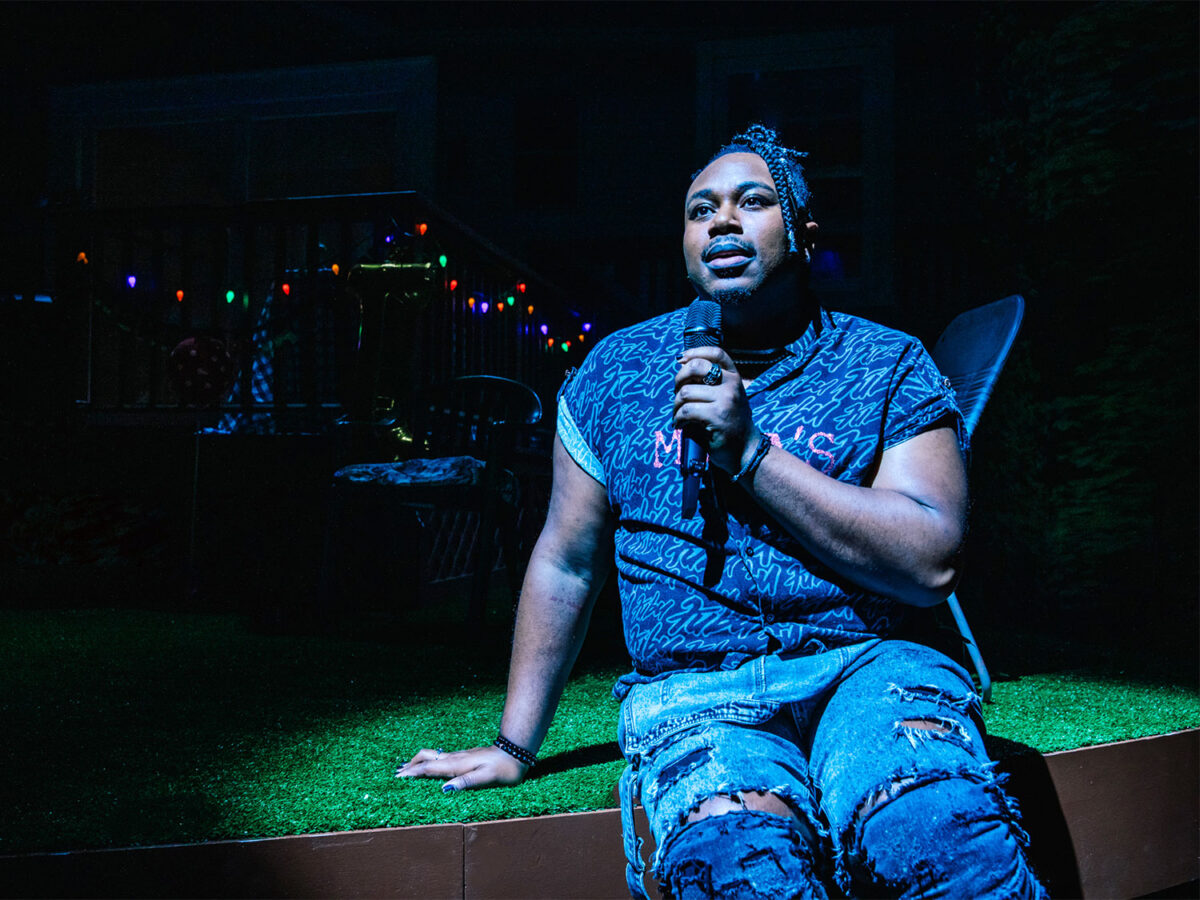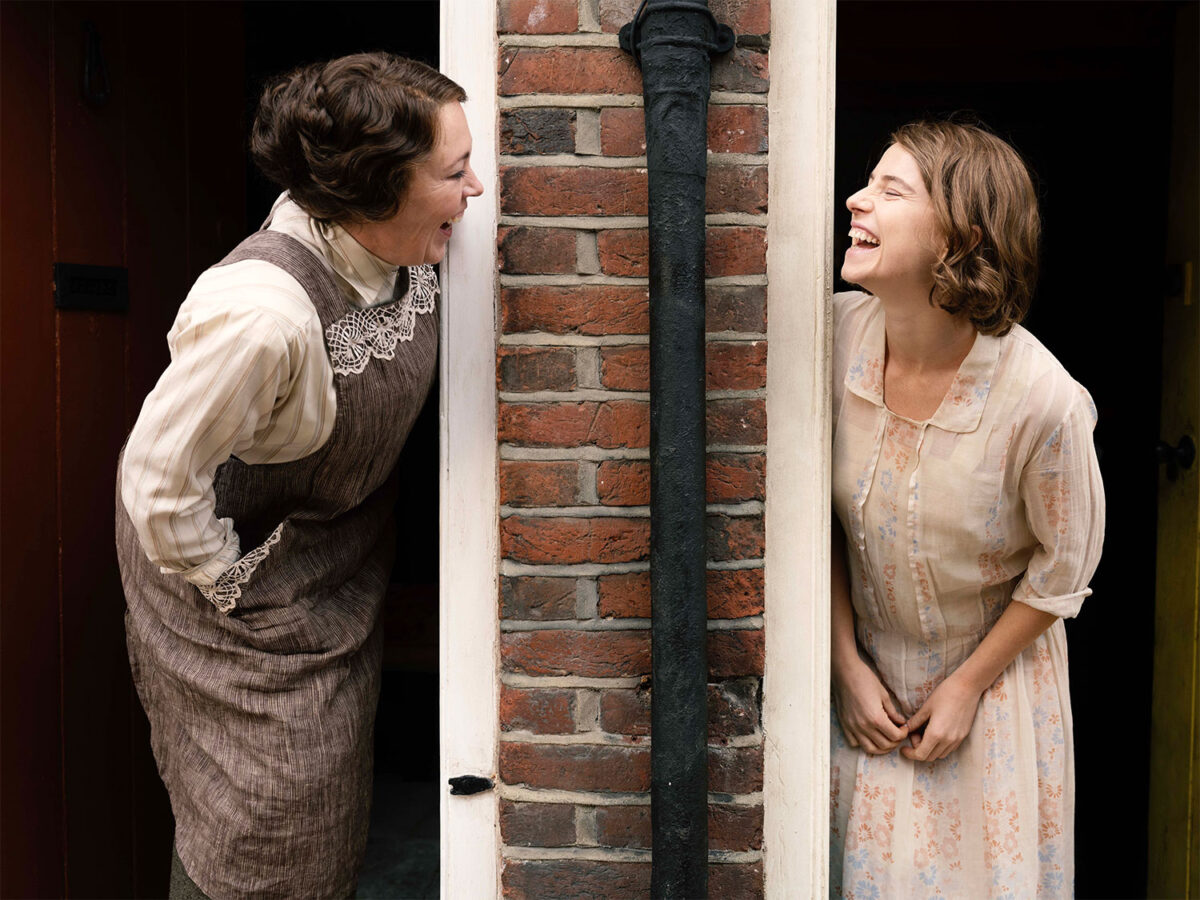“Memory,” a searingly incisive film about loss and love, tears at you from many directions, some unexpected. Initially, the impression is given that the story is about connection, and it is but not necessarily in ways you think.
Sylvia has just celebrated 13 years sober at AA and attends meetings religiously. This is her secret weapon of support and where we first meet her. Here she can be accepted, no questions asked. A single mother to daughter Anna, Sylvia is tense, uptight and anxious. Fiercely independent, they live in an apartment in a sketchy commercial neighborhood somewhere in Brooklyn. She meets her daughter every day after school and accompanies her home. Each time she enters the building, she looks over her shoulder, as you would also in that neighborhood, climbs the stairs to her apartment and upon entering, locks a series of bolts and sets the alarm. Something has made her this way. Take the hint when her refrigerator breaks down and a repairman arrives. She had asked for a woman and instead they sent a man. Reluctantly, warily, she allows him to enter because she can’t wait days for the one woman on staff.
Sylvia supports the two of them with her job working as a social worker at an adult day care center for physically and mentally challenged adults. Her acceptance of her charges, never patronizing, always straightforward, gives you important insight into her character. She’s caring, empathetic and willingly accepts people for who they are, not what they are supposed to be. In his own way, director Michel Franco has given a voice to a very marginalized group, seldom if ever seen on screen.
Rarely leaving her apartment for anything other than her meetings, shopping and work, she is reluctant to socialize. Probably through the constant badgering of her sister Olivia, Sylvia agrees to attend a reunion of alumni from their high school. Olivia, patient with her sister, prods and pulls and hand carries her to the party. What she is unable to do is get Sylvia to interact. There is a trigger here that we shall soon see is a key to who Sylvia is and why she cannot be more. When a somewhat sketchy man walks over and sits down next to her, she immediately rises, flees and heads for the subway. And so does he, close on her heels. Breathless, she arrives home, fastens all the locks and leaves him on the street, staring up at her apartment. It begins to rain. He doesn’t leave. The next morning she finds him under a plastic cover, alone, disoriented, almost comatose. Sylvia finds his identification and calls someone for help. His name is Saul and, as his brother and guardian, Isaac, tells Sylvia, he’s in the early stages of dementia. He probably won’t even remember why he is there.
But a connection has been made. Sylvia is sure he is part of her blemished past; Saul is as certain as a man with no memory can be that he knows her from somewhere. Isaac, sensing a connection, offers Sylvia an off-the-books job watching Saul at their brownstone, a neighborhood light-years from hers, socially, economically and emotionally. She accepts, but lingering not far from the surface, you sense her ulterior motive. On her first day with Saul, she takes him for a walk in the park and deliberately abandons him. But this isn’t who she is and she returns, eventually finding him and confronting him with what she is certain she knows about him. With a blank, perpetually pleasant smile, he apologizes if he harmed her, but he doesn’t recall. Sylvia’s memory of events, shaded by trauma, is almost as unreliable as Saul’s. She returns to Isaac and takes back this second gig, one that affords her and Anna a few luxuries that they couldn’t afford otherwise.
The mastery of director/writer Michel Franco is that all of this takes place at the very beginning of the film. Within 15 or so minutes, we know most of the why about Sylvia; her relationship with her daughter that is loving but restrictive based on past personal experience; the supportive role that Olivia plays in the lives of her sister and niece; Isaac’s guardianship; and Saul, the true cipher who can probably not tell you he was at the school reunion or how he got there but can tell you about the love he had for his deceased wife and long past experiences lost to others but not to him.
Brilliantly non-expositional, Franco has almost instantly freed his characters to grow into a present-day relationship that expands all of them. There is much to explore and Saul and Sylvia develop slowly into a mutual support network. The man losing his mind and the woman who is trying to find hers again grow together, never allowing the foreseeable end to stop them. But while they won’t allow that inevitability to stop their mutual support, others around them are not so accepting. Sylvia’s years of working with what others would consider the unworkable, is gifted with living in the present with those she helps. That she cannot, herself, live in the present is her tragedy. That Saul opens that door for her is his gift. Sometimes gifts come from the least expected directions.
The plot, while not exactly simplistic, could be summed up rather straightforwardly: two of society’s outcasts find each other and grow in directions that are both surprising and mundane. But this isn’t really about story. Story, here, is only a portal to the character development of Sylvia and her ability to face her demons and courageously slay an emotional dragon while bringing along her supposedly more successful sister in her draft. It is about what it takes to be brave and learn not to flee in the face of trauma, past and present. That Franco has used Saul and his dementia as a conduit to Sylvia’s self-awareness is remarkable.
Dementia is little understood. Saul’s illness could have been externally caused by trauma to the brain or it could be part of a genetic inevitability. It is different for each individual which is why there can be no hard and fast assumptions. Is Saul’s realistic? Who knows? Does it matter? It shouldn’t. Characteristically, many long-term memories remain embedded but short-term memories are fleeting. It’s why my mother could remember slights from childhood but couldn’t tell you what she had for lunch or even if she’d had lunch. Saul keeps a notebook for present-day memories and Sylvia is part of that notebook. But she is also embedded as part of long-term impressions because she reminds him of his late wife.
The source of Sylvia’s trauma and alcoholism are both different and similar to Saul’s dementia. Saul cannot remember; Sylvia cannot forget. There is nothing Saul can do about this but Sylvia must find a way to confront her demons, inextricably tied to her relationship with her mother, and move forward. She is on that path.
I was unacquainted with the work of director/writer Michel Franco. Explaining the way he works, he allows for much improvisation and collaboration with his actors. His screenplay, he explained, is a blueprint or jumping-off point. The actors are very much part of the story process and he remains open to their interpretation. His methods are novel because he is the writer, director, editor and producer. He and cinematographer, Yves Cape, work chronologically through the script. This is highly unusual because most scripts are broken down into convenient scene groupings. For Franco, filming the script in the order it is on the page is like filming a play, focusing on the words and the immediacy of the emotions. Hearing him describe his process allowed me a window into his depth of focus. The transition between scenes is very naturalistic and contributes to the buildup at the end.
The casting is exceptional (hats off to Susan Shopmaker). Brooke Timber as Anna is by turns mother and daughter to her mother Sylvia. Left primarily in the dark about her mother’s history, Timber’s strength was her ability to unwind and grow in front of us. Josh Charles plays Isaac, Saul’s brother. The legal guardian of his brother, Charles is able to convey the kind of protective compassion that is anything but. He goes from sympathetic to callous in the blink of an eye. Jessica Harper as Samantha, Sylvia’s mother, comes in like a gentle breeze and leaves like a destructive tornado. Her chilling performance here is a reminder of how missed she’s been on screen.
Merritt Weaver, Olivia, is one of today’s most formidable character actresses with a slew of awards to show for it. That she was able to pivot from saintly to complicit and back again is a tribute to the subtlety of her acting. She has always been a favorite of mine (“Nurse Jackie,” “Godless,” “Unbelievable”), and her mere presence enhances every scene she’s in.
Peter Sarsgaard, Saul, is a revelation as he navigates the portrayal of a man with an ambiguous disease. He effortlessly glides between cognizance and the incompetence brought on by a poorly understood disease. He plays his dementia as coming and going and coming again with a sweet incongruity that straddles the two. He has, like so many with dementia and/or Alzheimer’s, the sadness of realization and the contentment of incomprehension. He brings an inherent sympathy to all his roles.
Jessica Chastain as Sylvia is remarkable. Her ice queen demeanor, sprinkled with fear, is fragile and understandable, while at the same time incomprehensible. As a character, she shows the most growth, always maintaining a protective distance. An actress whose roles have been incredibly diverse, this may have been her most challenging and, in some ways, most fully realized. Her Sylvia gradually envelopes you in her trials and brings you fully onto her side, making her growth all the more extraordinary.
Now playing at the AMC Century City, opening wide on Jan. 5.
Neely Swanson spent most of her professional career in the television industry, almost all of it working for David E. Kelley. In her last full-time position as Executive Vice President of Development, she reviewed writer submissions and targeted content for adaptation. As she has often said, she did book reports for a living. For several years she was a freelance writer for “Written By,” the magazine of the WGA West, and was adjunct faculty at USC in the writing division of the School of Cinematic Arts. Neely has been writing film and television reviews for the “Easy Reader” for more than 10 years. Her past reviews can be read on Rotten Tomatoes where she is a tomato-approved critic.







